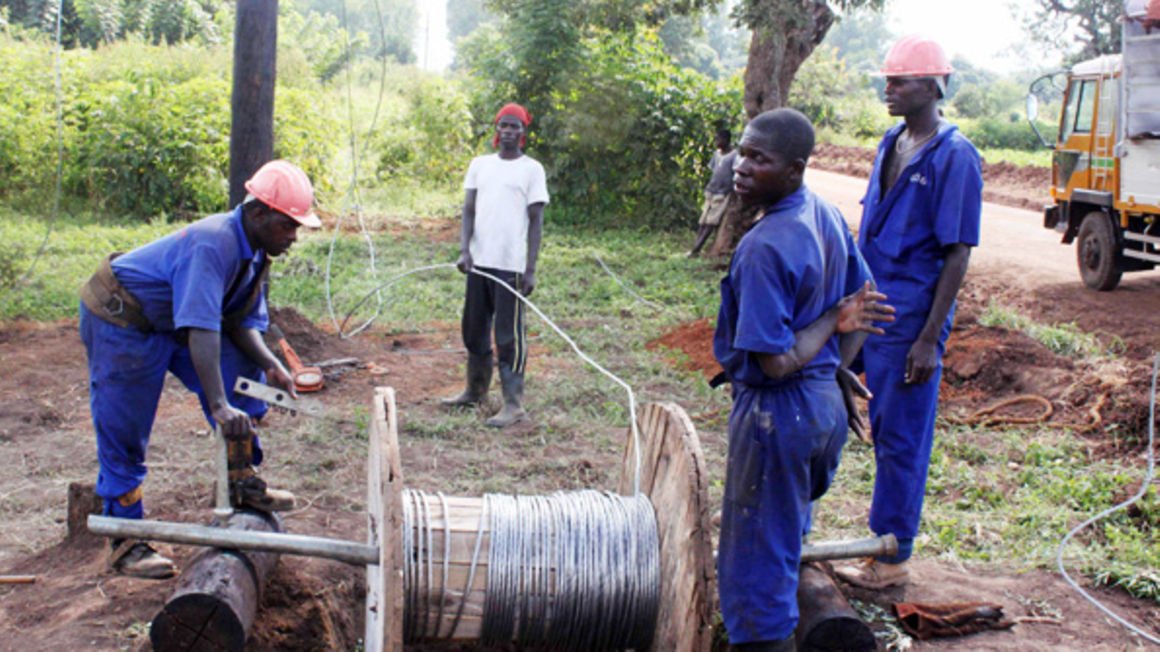Workers try to fix electricity wires in Alebtong, a majorly rural area. Despite of the massive resources invested, construction of various electricity power networks under REA are either not completed or are behind schedule. PHOTO/FILE/ HUDSON APUNYO. Government is in advanced stages of securing Shs1.4 trillion from the World Bank to support the free Electricity Connections Policy (ECP).
According to the Minister of Energy, the money expected to be obtained at the beginning of the financial year 2022/2023 is one of the interventions to ensure smooth electricity connections in the country.
Currently, the costs of electricity connection for domestic consumers range between Shs720,883 where no pole is required and Shs2,387,472m where one pole is required, with uninsulated cables, on top of the Shs41,300 in inspection fees.
Before the introduction of free connections in 2018, it would cost between Shs90,000 and Shs400,000 for no-pole and one-poll connections respectively.
Even with this, the government was heavily subsidising the sector, especially on connections, to help more Ugandans access electricity.
Therefore, government brought about the implementation of Electricity Connections Policy as a measure to enable electricity connections of the households at a free cost.
The ECP was aimed at increasing access from 20 per cent to 26 per cent by 2020 and 60 per cent by 2027. This would be achieved by increasing the number of connections made annually from the average 70,000 before the policy was made to 300,000 customers a year at full implementation.
It is noted that government released Shs42b for the FY 2020/2021 towards the implementation of Electricity Connections Policy out of which Shs27.8b was allocated to partly pay for the already made connections by Umeme and the balance of Shs14.2b given to Uganda Electricity Distribution Company Limited, and small service providers to partly pay for already made connections.
Patrick Edema,
epatrick60@gmail.com
